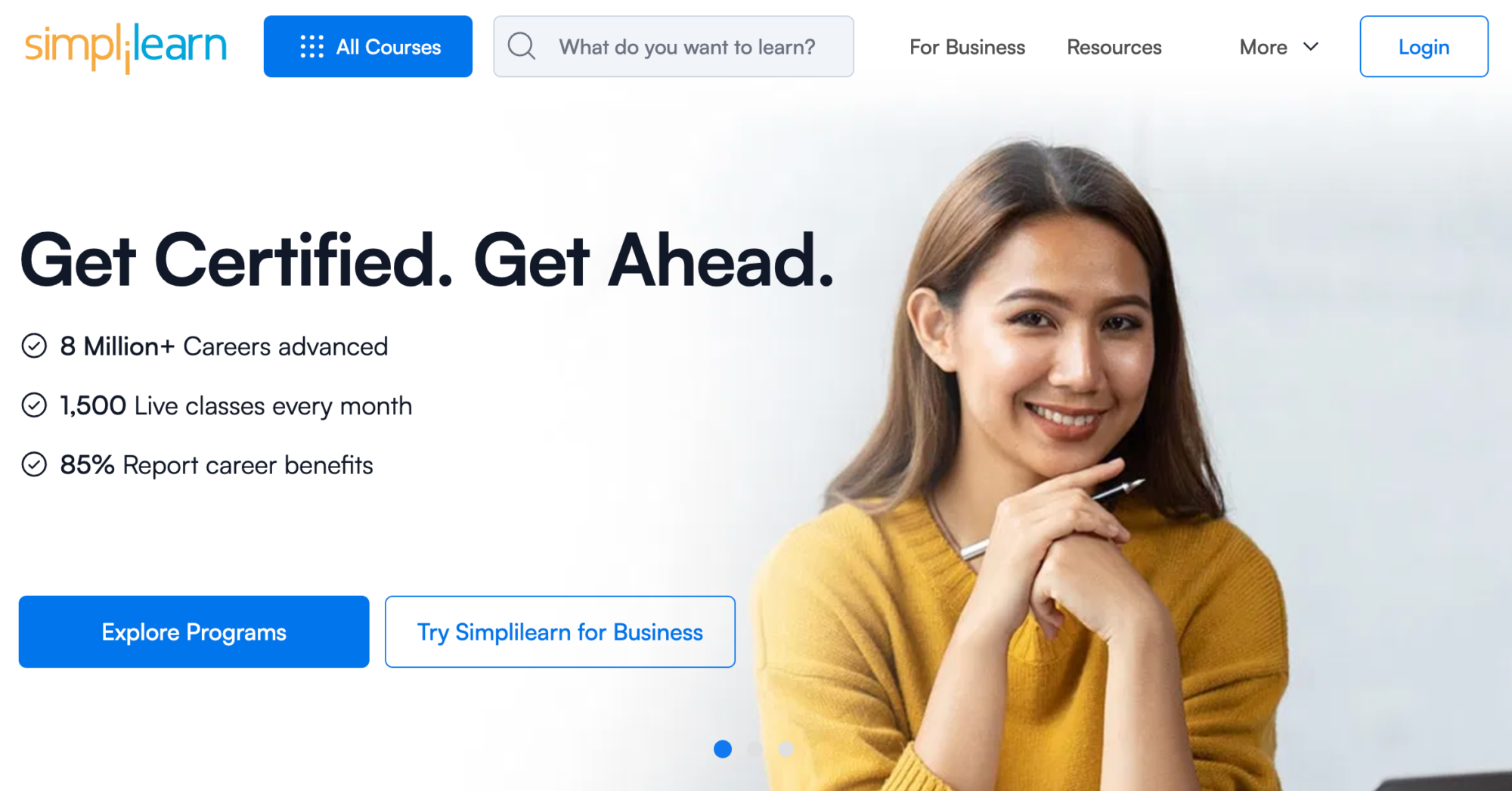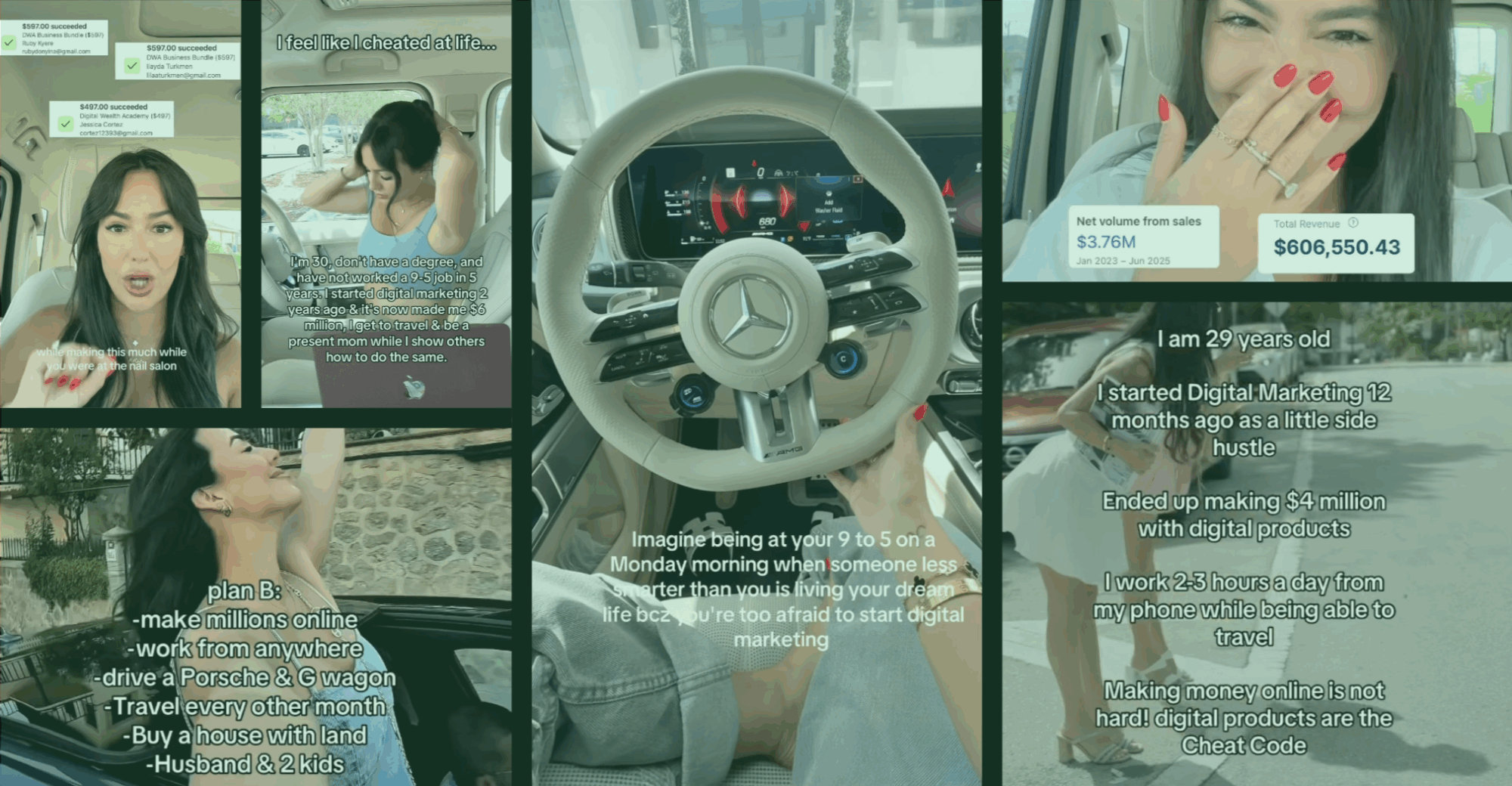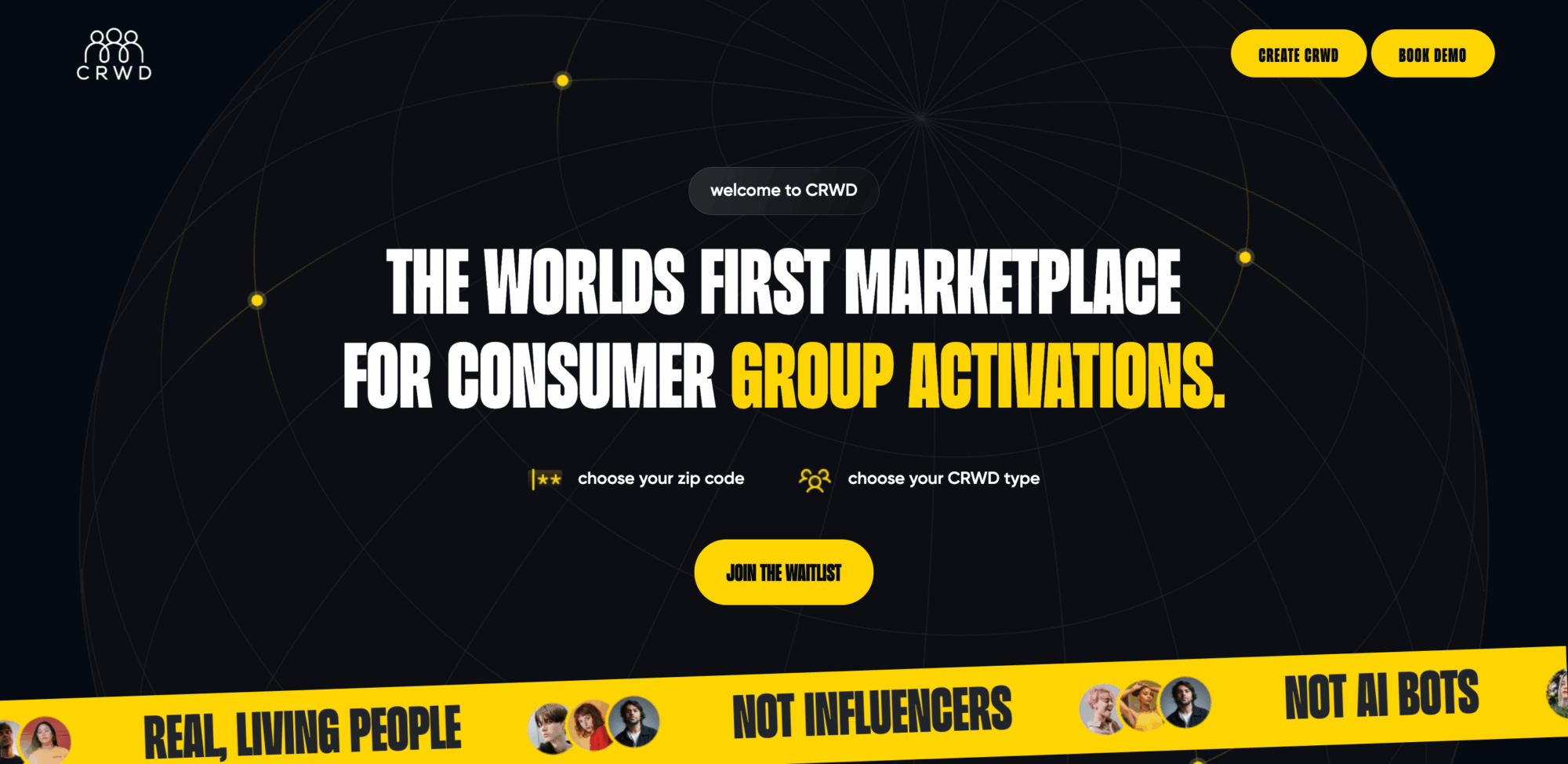
Simplilearn
What you should know about this digital skills training platform.
Will you really make thousands of dollars a month as a home baker?
On Instagram, Jess Stewart (aka micro bakery girl) claims that operating your own micro-bakery could earn you hundreds to thousands of dollars a month and help you pay for groceries, a car payment or even a mortgage. According to her posts, the business is simple – you don’t need to have a lot of time, customers or even recipes.
Ready to turn your hobby into a booming business? Stewart, who has more than 300,000 followers on Instagram, says she can teach you for free in her 60-minute masterclass.
But before you start dreaming of making dough, there are a few things you may want to know about this purported money-making opportunity.
For starters, Stewart’s “free masterclass” is just an ad for her actual course, Micro Bakery School, which isn’t free.
About halfway through the video, she gives viewers two options: Go it alone and take months or years trying to start a micro-bakery through trial and error, or purchase her course, which she touts as “a proven step-by-step system” to “start selling quickly” and building a “profitable” micro-bakery.
How much does the course cost? In the video Stewart claims that the course is valued at $997, which is double the price advertised on the course’s website. But Stewart says in the video that consumers can sign up for only $247.
To sweeten the deal, Stewart throws in a number of free gifts – increasing the “total value” of the offer to $2,573 – but warns that “this special offer will not be around forever.” (In reality, the deal is still available once a countdown timer hits zero.)
Throughout the video, Stewart claims that you could earn thousands of dollars a month or even make a full-time income with a micro-bakery.
But what are the odds that you can actually achieve this? Or that you’ll make any money at all? That’s critical information Stewart never discloses (and did not provide to TINA.org in response to a request for comment, which went unanswered).
Instead, she includes a vague disclaimer at the start of the video which says:
As we go through this masterclass, I’ll be sharing real examples of what’s possible with a micro-bakery – including income potential, and success stories from other bakers. However, these are examples, not guarantees.
Meanwhile, an earnings disclaimer at the bottom of the course’s checkout page goes into more detail:
Psst…we love sharing our success stories and those of our students, but let’s keep it real: results aren’t guaranteed. Everyone’s journey is unique, and your outcomes depend on factors like your effort, market, and following the right steps—like securing permits and complying with local laws. Starting a micro-bakery is fun and rewarding, but it takes dedication, persistence, and attention to the details—including the legal ones. We provide guidance and tools to help you succeed, but we can’t guarantee specific results or outcomes, and we’re not responsible for ensuring your compliance with applicable laws. If you’re ready to dive in and embrace the process, we’ll be cheering you on every step of the way. Your success is in your hands!
But according to the FTC, this isn’t enough. Ads pitching money-making opportunities with income claims (like Stewart’s) will likely be interpreted as “representative of what consumers will generally achieve with the advertised product.” That means the advertiser needs adequate substantiation to back up the implication that those income claims are typical of what people earn. Lacking this, the advertiser must “clearly and conspicuously disclose the generally expected performance in the depicted circumstances.” And here’s the key:
A disclosure such as, “Results not typical” . . . is insufficient to prevent [ads making atypical income claims] from being deceptive.
When TINA.org asked Stewart for substantiation that the advertised experience is typical or generally achievable, we heard crickets.
Of note, earlier this year Stewart admitted that she was running her micro-bakery full time but still not making a full-time income.
Stewart suggests in marketing materials, including the Instagram posts above, that setting up a home bakery is simple, saying, for example, that you don’t need a storefront or “a full business plan.” But depending on where you live, that may not be true. What’s more, you may run into some additional costs or restrictions that could make it difficult to turn a profit. Here are just a few examples:
And while the course’s website lists an address in Wyoming, which reportedly has “the best cottage food and food freedom law in the United States,” Stewart has told her followers that she lives in Arizona but set up her kitchen in Illinois.
Interestingly, the company is registered in both Wyoming (under Micro Bakery Girl LLC) and Arizona (under Micro Bakery LLC), but does not appear to be registered in Illinois.
Stewart reassures consumers that there is no risk to buying the course as it comes with a 30-day money-back guarantee. But this may not offer as much security as it seems.
For one, Stewart says it could take up to six weeks just to get approved for permits – meaning your time to request a refund may run out before you even get your micro-bakery up and running. Additionally, on her website she estimates that startup costs “in most cases” can be “as little as $500-$1,000.” So even if you get the cost of the course refunded, you may end up down some cash anyway due to the money spent on equipment, ingredients and permits.
Consumers should be wary of any purported business opportunity that claims you can make a lot of money quickly or easily. Before investing any of your money, find out exactly how the business works (or doesn’t work) and how others have made money (or lost money) in the venture.
Find more of our coverage on earnings and financial claims.
Our Ad Alerts are not just about false and deceptive marketing issues, but may also be about ads that, although not necessarily deceptive, should be viewed with caution. Ad Alerts can also be about single issues and may not include a comprehensive list of all marketing issues relating to the brand discussed.
What you should know about this digital skills training platform.
Can you really escape the 9 to 5 with this money-making opportunity?
Can you really get paid to write reviews?

